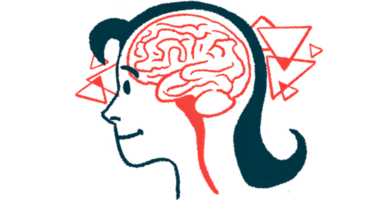Interactive Research, Rehab Center for DBS Opening at Mount Sinai

People with Parkinson’s disease who undergo deep brain stimulation (DBS) at Mount Sinai in New York, along with those scheduled for the surgical treatment, will soon have access to Q-Lab, a newly opening immersive and interactive rehabilitation and research facility.
A collaboration between the Nash Family Center for Advanced Circuit Therapeutics (C-ACT) at Mount Sinai and Studio Elsewhere, Q-Lab is an immersive, interactive rehab environment using artificial intelligence to analyze subtle changes in people with neuropsychiatric disorders given or awaiting DBS for research purposes.
In addition to Parkinson’s, DBS can be used to treat medication-resistant conditions that include depression and obsessive-compulsive disorder.
“We’re thrilled to show an imaginative and unique vision for artificial intelligence, machine learning and immersive technology in scientific research that centers the multi-dimensionality of each patient and deeply considers the experience of their treatment and recovery,” Mirelle Phillips, founder of Studio Elsewhere and a video game industry veteran, said in a press release.
Q-Lab aims to quantitatively assess patients’ movement, emotion, and cognition during a series of 30-minute sessions that feature “custom bio-experiential immersive experiences.”
Studio Elsewhere developed these experiences alongside a sophisticated data collection platform meant to gather “vast amounts” of open-ended biological and cognitive information.
The collaborators expect this approach to be capable of detecting subtle changes in behavior that current techniques would miss. This would enable healthcare practitioners to better track a patient’s progress and adjust treatment plans as needed, based on personalized quantitative measurements.
DBS aims to treat certain physical symptoms associated with Parkinson’s — including tremor, rigidity, and stiffness, as well as chronic pain — and other neurodegenerative disorders by delivering electrical pulses directly to specific brain regions. It is reserved for patients who fail to respond adequately to medications.
Q-Lab, located at Mount Sinai West hospital in Manhattan, also aims to offer patients using it a restorative experience, beginning with a design inspired by Japanese tea houses and gardens.
“Q-Lab represents a unique synergy of science and design and is an important step towards realizing our greater team mission of personalized, evidence-based treatment and rehabilitation,” said Helen S. Mayberg, MD, founding director of the Nash Family Center.
Q-Lab will also function as an incubator for new C-ACT research projects. Projects will emphasize developing new biomarkers to help guide patient selection, monitor responses to therapy, and predict outcomes for DBS patients of various diagnoses.
“Q-Lab showcases what is possible when a committed team of neuroscientists, clinicians, designers, engineers, artists, and creative technologists collaborate directly with patients to push conventional ideas of research and care into something extraordinary for the entire ecosystem,” Phillips said.







